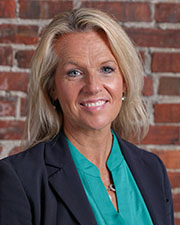News: Northern New England
Posted: October 4, 2012
What should we citizens be pondering as we prepare to cast our votes in November?
With the primaries over, we now have to get serious about what changes (if any) we will effect in Washington and here in Concord New Hampshire. Gov. Lynch will ride off into the sunset, but his successor will have their hands full. It appears Speaker O'Brien will be re-elected (that the Democrats could not find a viable candidate to run against him is a major strategic blunder). Regardless, New Hampshire's oversized legislature will reconvene and gin up 800, 1,000, or 1,100 bills, most of which will not address the State's competitiveness in a "flatten global economy." The once famous "New Hampshire Advantage" is dissipating before our eyes.
Shifting to Washington - what a mess! Two recent reads have helped me to cut through many layers of rhetoric (but not all). First, That Used To Be Us by Tom Friedman and Michael Mendelbaum (Picador Press, 377 pages, $16 in paperback). The second, a Harvard University Alumni Magazine article Can America Compete? - Strategies for Economic Revival (Harvard Magazine, September/October 2012, pp. 26 - 43). Both of these have articulated the current mess/impasse, as well as the multiple challenges facing the United States today as we try to avoid driving into the financial abyss. Under current law, sequestration will cut $108 billion in federal spending in January, 2013 (my daughter, who works for the Inspector General's Office at U.S. Department of Transportation in Washington, has been told she may have to take 6 to 9 weeks off, without pay).
So, what should we citizens be pondering as we prepare to cast our votes in November? First, there are immediate problems, such as the financial abyss cited above and then there are longer term problems dealing with our declining competitiveness, bloated public and private debt, unsustainable entitlement programs, rapidly declining public education and a dysfunctional Congress caught up in their party's rhetoric, lacking leadership, and unwilling to work across the aisle to pass meaningful legislation. It is, in fact, a great mess.
Let's start with Friedman and Mendelbaum. I had lost interest in Friedman. His first two books - From Beirut to Jerusalem and The Lexus and the Olive Tree were excellent, then not so much! Michael Mendelbaum has somehow gotten him back on task. That Used to be Us is a quick but extremely thought-provoking read. At the risk of giving away the plot, Friedman and Mendelbaum cited four major challenges facing the US today - "The end of the Cold War, in fact ushered in a new era that poses four major challenges for America. These are: 1) how to adapt to globalization; 2) how to adjust to the information technology (IT) revolution; 3) how to cope with the large and soaring budget deficits stemming from the growing demands on government at every level; and 4) how to manage a world of both rising energy consumption and rising climate threats. These four challenges, and how we meet them, will define America's future" (pp. 18 - 19). Again, not to give the plot away, the authors' state "....failure is by no means inevitable. Coming back, thriving in this century, preserving the American dream and the American role in the world will require adopting policies appropriate to confronting the four great challenges." To tackle these topics, their book is organized into five parts.
Part One - The Diagnosis
Part Two - The Education Challenge
Part Three - The War on Math and Physics
Part Four - Political Failure
Part Five - Re-discovering America
I am pleased to recommend that you spend the time to read this book before the first Tuesday in November. It may or may not change your mind regarding any individual candidates but it will make abundantly clear that this election is the first of many that will determine our fate.
Now, the Harvard Magazine article - Can America Compete? - Strategies for Economic Revival is thought-provoking. In the interest of full disclosure, I did "park my car in Harvard Yard" 40+ years ago. In fact, I majored in government, but mostly because it had the fewest number of required courses, allowing me to take a few more electives. Professor Michael Porter and many of his colleagues, including Rosabeth Moss Kantor and David Moss all cite their individual current work and focus. What is attention-getting is the overall realization that the U.S. was slipping (v. international competition) as early as 2000. The "Great Recession" caught everyone's attention but the problems are many, deep, widespread and not easily resolved without will, political bipartisanship and leadership. So our task to get our nation, and our economy, back on the right path by more than rebounding from the financial meltdown caused by the subprime loan debacle is, as Michael Porter states, "we should have been worried before the "Great Recession."
I have been asked numerous times - who do you think will win the presidency? I reply - I do not think either will win it... but one of them will lose it! Time will tell. Whichever candidate gets sworn in January, they better be prepared to set aside all of the election B.S. and roll up their sleeves to lead both sides of the aisle toward earnest and positive actions to confront the Four Big Challenges facing all of us.
Bill Norton, CRE, FMA, is president of Norton Asset Management, Inc., Manchester, N.H.
MORE FROM Northern New England
Northern New England
While many Realtors will tell you what you need to do in order to sell your residential property at the highest price (clean out the junk, update bathrooms and kitchens, paint, etc.) most people don’t get easy to follow guidance on what to do to help your commercial real estate sale. Other than that advice that I












